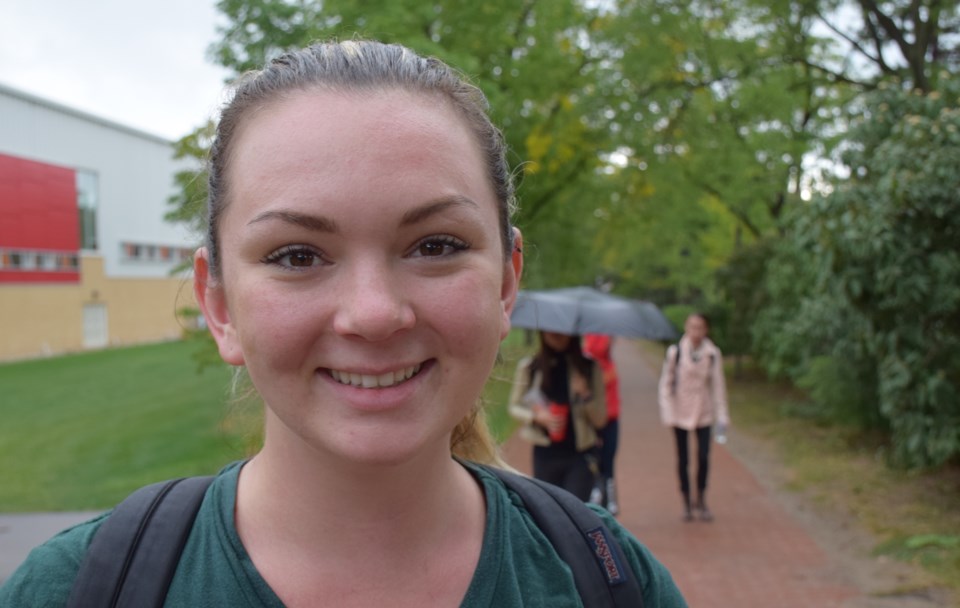Intense pressure to do well in school appears to be putting intense pressure on the mental health of post-secondary students.
Jestyn Murphy, a third-year zoology student at the University of Guelph knows too well the feeling of overwhelming anxiety and debilitating depression. The 20-year-old has battled through both, much of which resulted from a fear of failing grades.
Murphy said on Monday she is not at all surprised by the findings of a new survey just released by the Ontario University and College Health Association (OUCHA). The survey, completed by 25,000 Ontario college and university students, shows alarming rates of anxiety, depression, suicidal thoughts, and attempted suicide among post-secondary students.
The recent numbers are all higher than numbers collected in a similar survey by OUCHA three years ago. The new survey found that 65 percent (up from 57 percent in 2013) of students experienced overwhelming anxiety during the Spring 2016 semester.
Nearly half of those surveyed, 46 percent, reported severe depression to the point where they were unable to function (40 percent in 2013), and 13 percent seriously considered suicide, up from 10 percent three years ago.
A shocking 2.2 percent of the 25,000 students attempted suicide.
Quoted in a CBC report Monday, Meg Houghton, president of the association, said counsellors in post-secondary settings are now completely overwhelmed by what has become a mental health crisis, and a growing need for services.
In an interview Monday, U of G associate vice-president of student affairs Brenda Whiteside said the mental health challenges of U of G students parallel the findings of the survey. She said it is a universal problem, not just confined to Ontario campuses.
“I’m not at all surprised by the findings,” said Murphy, who has learned to cope with her mental health challenges through therapy, but medication was necessary in the early stages. She wants to go on to veterinary school, and needs top marks to achieve that goal.
“There are so many pressures externally and from within ourselves to get good marks,” Murphy said. “And the pressure is probably much higher for undergraduate students because most are looking to go on to the post-graduate level. It all has to do with worrying about the future.”
The pressures are even more intense, she said, when a student is involved in athletics or other extracurricular activity where time commitments are substantial.
“There is often not enough time to complete all the school work, and that is added pressure,” she said, adding that a number of her friends decided to leave school because the pressure was too great.
Whiteside said part of the increased anxiety students are experiencing is a result of not knowing what their future holds.
The parents of today’s university students, she said, have largely enjoyed career success, and have encouraged their children to do very well in school.
“University is a time when you now have the opportunity to make your own decisions, and it is now more your responsibility,” she said. “Helping students traverse that journey is what we need to do.”
First year engineering student Daniel Igra said he experiences high anxiety at the thought of missing an assignment deadline or doing poorly in an exam.
“You feel terrible, like you really messed up,” he said.
While Igra was surprised to hear the results of the survey, he understands why there is so much pressure on students.
“When you have to maintain an average, when you have to organize your time but you don’t have enough time, it’s too much pressure,” he said. “Your future is at stake. It’s a lot of pressure to achieve your goals when it is all up to you.”
In former generations, not doing well at university was not seen as the great failure that it is today, Whiteside indicated. There were many other alternatives to earning a living and supporting a family.
“Students are now thinking, if I don’t get a university degree I’m in trouble,” Whiteside added. “We have to spend some time as a society to say that university is not the only way.”
She said that a great deal of important work has been done to reduce the stigma around mental illness. More students are now coming forward and seeking counselling on campuses.
“You never would have seen that 15 or more years ago, because getting counselling in the old days was seen as, there must be something wrong with you,” she said.
Like OUCHA, Whiteside said U of G supports a coordinated on-campus strategy to address more thoroughly the mental health challenges of today’s students.
She added that U of G drafted a document last year focused on coordinated mental health care, which included components around prevention, intervention, health lifestyles, and supports.
